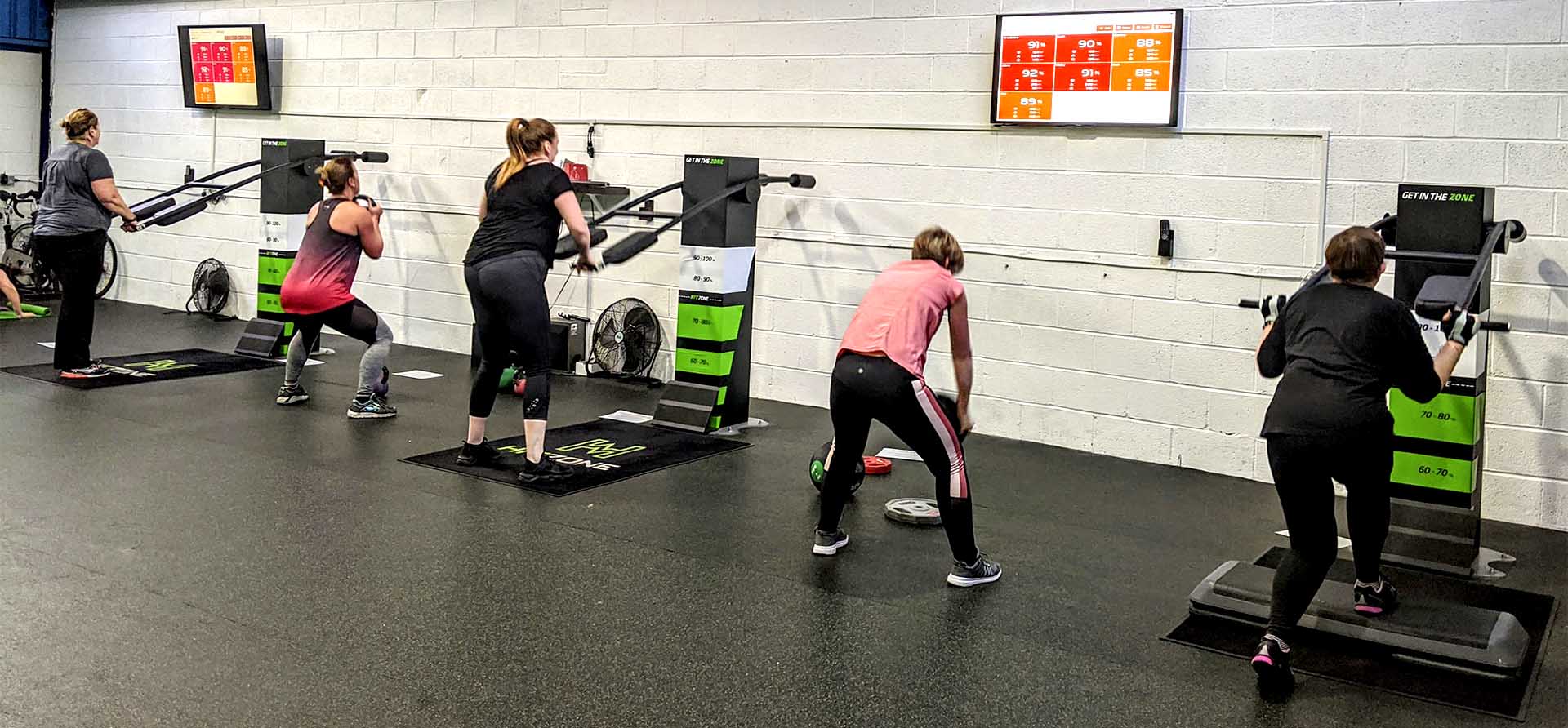Wearable technology has been a top fitness trend since 2016 and this year is no different with it taking the number 1 position in the ACSM Top 10 Worldwide Fitness Trends of 2020.
Wearable technology can provide a lot of useful fitness information such as the number of steps taken during a run or the number of strokes during swim. Recently Fitbit activated a blood oxygen monitor across a wide range of devices such as their Versa and Iconic bands, and we are sure to see competitors such as Apple and Garmin follow soon. Who knows where this technology will lead in the future, with blood pressure, dehydration levels and even alerts in relation to the air quality on your run being possibilities. However, out of all of these, possibly the most useful fitness data provided by wearables – is your heart rate.
At HITZone each of our members wears a heart rate monitor chest strap which collects data and displays it on a screen during sessions. This information can be used to help you monitor your activity levels and gain valuable insight from your performance.
Why should I measure my heart rate?
Measuring your heart rate can help you track your fitness and monitor if you’re exercising at a level that is right for you.
Unlike any other muscle, you heart needs physical activity to keep it healthy. In most cases regular exercise can help improve your overall health and improve many of the risk factors for heart and circulatory diseases, such as diabetes.

Of course, each of us are different and so our HITZone Heartrate monitors first set up a heart rate range and threshold for each training zone. This is unique to each member and defines a HRmax value (maximum heart-rate) based on your date of birth as specified by the Tanaka formula:
Tanaka: 208 – 0.7 x age in years
This is a baseline equation to work from and it can be adjusted by your PT to reflect your current fitness level and conditioning as you progress.
Your Heart Rate In Everyday Life
Understanding your heart rate in relation to exercise and how hard to push yourself in a HITZone session is really useful to get the most from your workout. However, it is worth keeping an eye on your heart rate outside of the studio as well.
You can take your pulse by touching your fingers to your neck, wrist or elbow and counting the beats for 1 minute. For most people it is between 60 and 85 beats per minute (bpm), although some doctors say that up to 100 bpm is ok. You want to do this while you are resting – a resting heart rate.
Having a heart rate which is either too low (bradycardia) or too high (tachycardia) can be a way for your body to let you know something is not quite right. Examples of things which could affect your heart rate are:
- You are not getting enough exercise. Your heart is a muscle and needs to be exercised regularly in order to stay healthy. If your heart is out of shape, then it has to work harder to push blood and oxygen around your body.
- Hydration level. Drinking too much water or not enough can throw off the electrolytes in your system and result in a heart rate shift.
- Whether recreational or prescription, or even your daily caffeine fix – many drugs can have an impact on your system and cause a high or low heart rate.
- This can result in both high blood pressure and a high heart rate.
There are many other factors which can affect your heart rate such as your heart electrical system, diabetes or an under or over active thyroid. A resting heart rate outside of the normal resting heart rate range combined with symptoms like shortness of breath, dizziness and fatigue may indicate a heart problem. Checking your pulse can also tell you if your heart beat is regular or irregular. You should make an appointment with your GP if you’re concerned about your resting heart rate.
Links for further reading:
British Heart Foundation: https://www.bhf.org.uk/informationsupport/how-a-healthy-heart-works/your-heart-rate
Active: https://www.active.com/fitness/articles/7-things-your-heart-rate-says-about-you
CNET: https://www.cnet.com/news/fitbit-blood-oxygen-monitoring-feature-is-here-but-what-about-apple-watch/
Techradar: https://www.techradar.com/uk/news/are-fitness-trackers-the-future-of-healthcare




